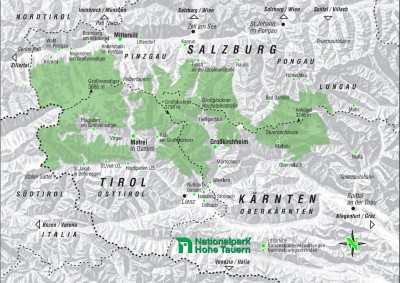Your stayArrive relaxed to experience lots
The Hohe Tauern National Park covers three provinces. Carinthia, Salzburg and Tyrol form this protected area.
Experience nature in every season
Access to the Hohe Tauern National Park is free of charge and – depending on the weather and snow conditions – accessible throughout the year and 24/7. Dogs must not stray from designated trails and be kept on a lead. The national park can be explored on footpaths from many adjoining valleys in Pinzgau, Pongau and Lungau (Salzburg), Iseltal (Isel valley) and Lienz (from East Tyrol), and Mölltal (Möll valley) and the Malta region (Carinthia). Usually, there are visitor car parks at the starting points with information panels.
Visitors to the towns and communities in the national park can obtain further information from the tourist information centres or from the national park's own information points.
Our tips make light work of getting here, choosing accommodation and making plans for your stay.
Our national park rangers
Passion and a calling
Nobody knows the park as well as they do:
You will experience the best of the protected area.
thanks to our rangers



